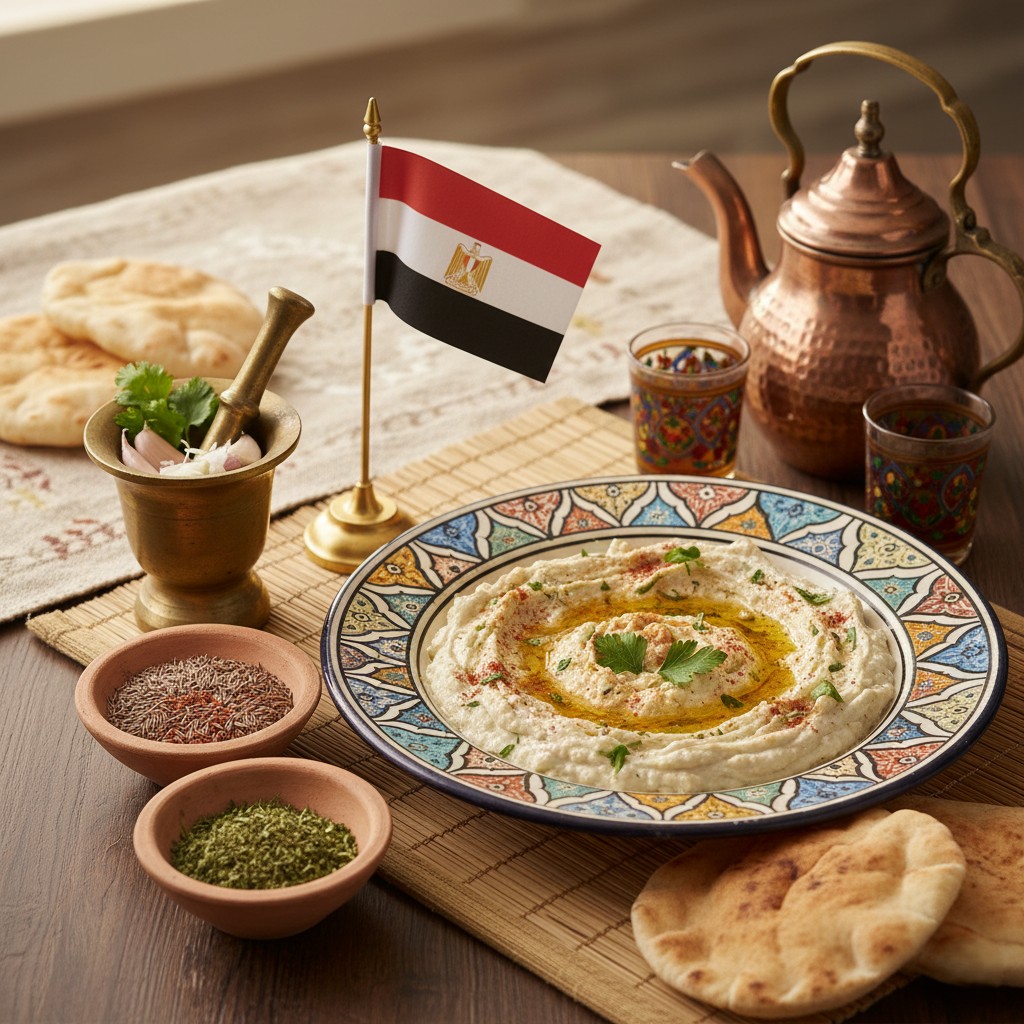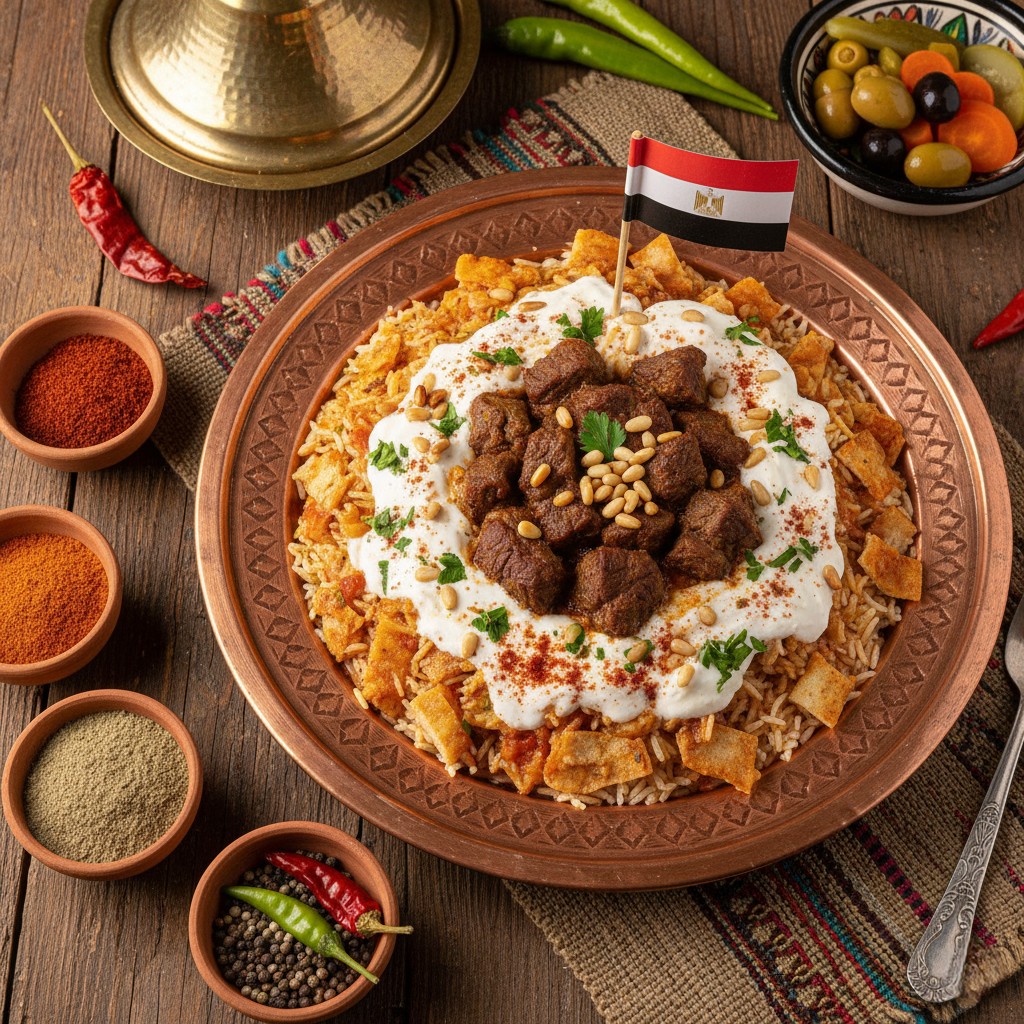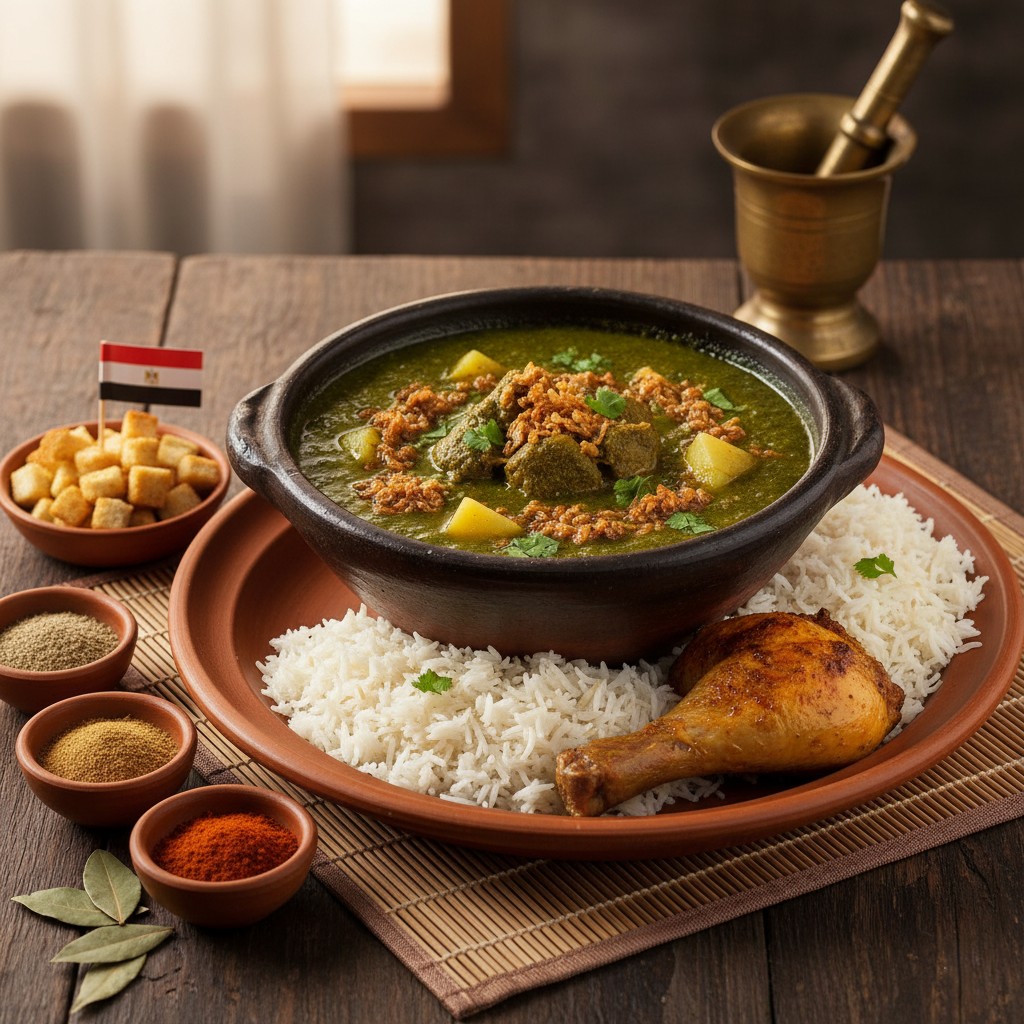Egyptian Baba Ganoush is a delightful dip that has become a staple in Middle Eastern cuisine, particularly in Egypt. The name “Baba Ganoush” translates to “coquettish father” or “pampered father,” reflecting the dish’s rich and indulgent nature. This creamy dip is made primarily from grilled eggplant, tahini (sesame paste), garlic, lemon juice, and olive oil. It is typically garnished with parsley, paprika, and sometimes pomegranate seeds for added flavor and visual appeal.
The origins of Baba Ganoush can be traced back to the Levant region, which includes modern-day Syria, Lebanon, Jordan, Palestine, and Israel. However, Egypt has embraced this dish as its own, incorporating it into various culinary traditions and festivals. The dip is often served with pita bread or vegetables, making it a popular meze (appetizer) in Egyptian households and restaurants.
Origin and Cultural Significance
Baba Ganoush’s popularity in Egypt can be attributed to the country’s rich agricultural heritage and its love for eggplant-based dishes. Eggplants are widely cultivated in Egypt due to their adaptability to the local climate, making them a readily available ingredient. The dish has evolved over time, with regional variations adding unique twists to the classic recipe.
In Egyptian culture, food plays a central role in social gatherings and celebrations. Baba Ganoush is often served during family reunions, religious holidays like Eid al-Fitr and Eid al-Adha, and other festive occasions. It symbolizes hospitality and generosity, reflecting the warm and welcoming nature of Egyptian people.
Egypt: Location and Culture
Egypt, officially known as the Arab Republic of Egypt, is located in the northeastern corner of Africa, with a small portion extending into Asia via the Sinai Peninsula. The country is bordered by the Mediterranean Sea to the north and the Red Sea to the east. Its rich history dates back thousands of years, making it one of the world’s oldest civilizations.
Egyptian culture is a vibrant blend of ancient traditions and modern influences. The country is renowned for its iconic landmarks such as the Pyramids of Giza, the Sphinx, and the temples of Luxor and Karnak. Egyptian cuisine is diverse and flavorful, reflecting the country’s agricultural abundance and culinary heritage. From hearty stews like molokhia to sweet treats like basbousa, Egyptian food offers a delightful journey through its rich cultural tapestry.
Recipe for Egyptian Baba Ganoush
Ingredients:
- 2 large eggplants
- 1/4 cup tahini (sesame paste)
- 3 cloves garlic, minced
- Juice of 1 lemon
- 3 tablespoons olive oil
- Salt to taste
- Fresh parsley for garnish
- Paprika for garnish
Instructions:
- Prepare the Eggplant:
- Preheat your oven to 400°F (200°C).
- Prick the eggplants with a fork in several places to prevent them from bursting.
- Place the eggplants on a baking sheet and roast for about 45-60 minutes, or until the skin is charred and the flesh is soft. Alternatively, you can grill the eggplants over an open flame until the skin is blackened.
- Cool and Peel:
- Remove the eggplants from the oven and let them cool slightly.
- Once cool enough to handle, peel off the charred skin and discard it.
- Scoop out the flesh and place it in a colander to drain any excess liquid for about 10 minutes.
- Blend the Ingredients:
- In a food processor or blender, combine the eggplant flesh, tahini, minced garlic, lemon juice, olive oil, and salt.
- Blend until smooth and creamy, scraping down the sides as needed.
- Serve:
- Transfer the Baba Ganoush to a serving dish.
- Garnish with chopped parsley and a sprinkle of paprika.
- Serve with pita bread or vegetables for dipping.
Conclusion: Visiting Southern North Africa
Visiting southern North Africa, particularly Egypt, is an unforgettable experience that combines ancient history, vibrant culture, and breathtaking landscapes. The region offers a wealth of attractions, from the iconic Pyramids of Giza to the mystical temples of Luxor and Karnak.
One of the most awe-inspiring experiences is exploring the Sahara Desert. The vast expanse of sand dunes, oases, and ancient trade routes offers a glimpse into the nomadic lifestyle of the Bedouin people. Legend has it that the Sahara was once home to the lost city of Zinjibar, a mythical place filled with treasures and mysteries.
For those interested in Egyptian culture, visiting the bustling markets (souks) is a must. Here, you can find everything from spices and textiles to traditional handicrafts. Don’t forget to try some local delicacies like koshary, a hearty dish made with rice, lentils, and pasta, or ful medames, a staple breakfast food of fava beans.
A few useful Egyptian phrases for tourists include:
- Marhaba (مرحبًا) – Hello
- Shukran (شكرًا) – Thank you
- La shukran (لا شكرًا) – No thank you
- Min fadlak (من فضلك) – Please
In conclusion, a trip to southern North Africa promises an adventure filled with history, culture, and natural beauty. Whether you’re exploring the ancient ruins of Egypt or venturing into the vast Sahara Desert, this region offers an experience that will leave you with memories to last a lifetime.



![Egyptian Koshary [also spelled Koshari or Koshery]](https://www.lamaghrebine.com/wp-content/uploads/2025/11/Egyptian-Koshary.jpg)

